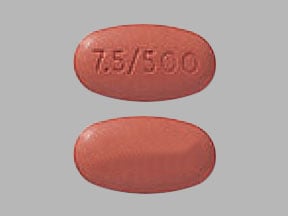
Segluromet Coupons & Savings Card – Discount Prices from $351.58
My prescription
Edit
7.5-500MG, Segluromet (60 Tablets)
Select pharmacy

CVS
$376.09
COUPON PRICE
Walmart
$351.58
COUPON PRICE
Albertsons
$357.11
COUPON PRICE
Walgreens
$362.57
COUPON PRICESegluromet savings card
Show this card to your pharmacist
Walmart
$351.58
BIN
ID
PCN
GRP
019876
LH98888E90
CHIPPO
LHX
Powered by
Related SGLT2 inhibitor / biguanide combinations prescriptions
More prescriptions for diabetes type 2
Related SGLT2 inhibitor / biguanide combinations prescriptions
More prescriptions for diabetes type 2
Price history for Segluromet
60 Tablets, 7.5-500MG
Average retail price for Segluromet
Average SaveHealth price for Segluromet
Our price history data is based on aggregated prescription data collected from participating pharmacies in America. Our prescription data updates daily to reflect the latest price changes. If you notice a missing data point, it means there wasn't sufficient data available to generate a monetary value for that date.
*Retail prices are based on pharmacy claims data, and may not be accurate when we don't have enough claims.
Segluromet dosage forms
Dosage Quantity Price from Per unit 2.5-500MG 60 Tablets $345.75 $5.76 2.5-500MG 180 Tablets $1053.25 $5.85 2.5-500MG 500 Tablets $2895.93 $5.79 2.5-1000MG 60 Tablets $351.58 $5.86 2.5-1000MG 180 Tablets $1054.25 $5.86 2.5-1000MG 500 Tablets $2895.93 $5.79 7.5-500MG 60 Tablets $351.58 $5.86 7.5-500MG 180 Tablets $1041.33 $5.79 7.5-500MG 500 Tablets $2865.92 $5.73 7.5-1000MG 60 Tablets $351.58 $5.86
| Dosage | Quantity | Price from | Per unit |
|---|---|---|---|
| 2.5-500MG | 60 Tablets | $345.75 | $5.76 |
| 2.5-500MG | 180 Tablets | $1053.25 | $5.85 |
| 2.5-500MG | 500 Tablets | $2895.93 | $5.79 |
| 2.5-1000MG | 60 Tablets | $351.58 | $5.86 |
| 2.5-1000MG | 180 Tablets | $1054.25 | $5.86 |
| 2.5-1000MG | 500 Tablets | $2895.93 | $5.79 |
| 7.5-500MG | 60 Tablets | $351.58 | $5.86 |
| 7.5-500MG | 180 Tablets | $1041.33 | $5.79 |
| 7.5-500MG | 500 Tablets | $2865.92 | $5.73 |
| 7.5-1000MG | 60 Tablets | $351.58 | $5.86 |
| 7.5-1000MG | 180 Tablets | $1043.60 | $5.80 |
| 7.5-1000MG | 500 Tablets | $2872.23 | $5.74 |
What is a Segluromet?
Segluromet is a prescription medication that combines two active ingredients: ertugliflozin and metformin. It is used to help control blood sugar levels in adults with type 2 diabetes, alongside diet and exercise. Ertugliflozin is a sodium-glucose co-transporter 2 (SGLT2) inhibitor, while metformin is a biguanide. Together, they work to improve glycemic control by reducing glucose reabsorption in the kidneys and decreasing glucose production in the liver.
Using the SaveHealth discount card, what is the price of Segluromet without insurance?
Using the SaveHealth discount card, the price of Segluromet without insurance is $351.58.
What is the price of Segluromet at CVS?
The price of Segluromet at CVS is $376.09.
What is the price of Segluromet at Walgreens?
The price of Segluromet at Walgreens is $362.57.
What is the price of Segluromet at Walmart?
The price of Segluromet at Walmart is $351.58.
